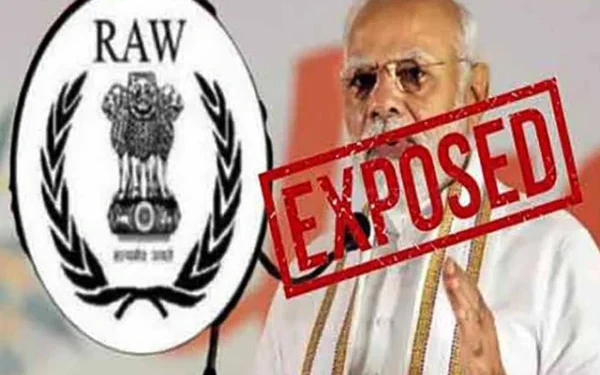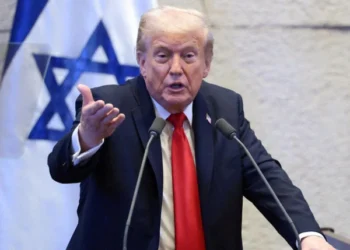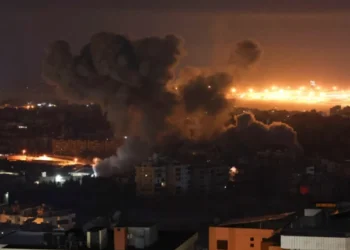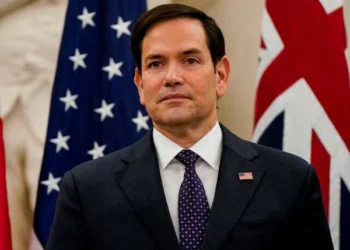Introduction: An International Assassination Plot Unveiled
In a shocking development that has strained diplomatic ties and raised concerns about state-sponsored terrorism, United States court documents have revealed that the Indian intelligence agency RAW (Research and Analysis Wing) was allegedly involved in a covert assassination plot targeting Khalistani leaders residing in North America. The revelations expose the Modi-led Indian government’s aggressive tactics against pro-Khalistan activists and raise serious questions about India’s commitment to international law and human rights.
The case centers around Indian national Nikhil Gupta, who has been accused of working under the direction of a senior Indian intelligence officer to assassinate Gurpatwant Singh Pannun, an American and Canadian citizen and prominent Khalistani figure. The documents also link this plot to the killing of Hardeep Singh Nijjar in Canada in June 2023 — an incident that had already caused a major diplomatic rift between Canada and India.
The RAW Conspiracy: Inside the U.S. Court Revelations
According to official documents from the U.S. Department of Justice, Nikhil Gupta admitted that he had been recruited by a senior Indian official to orchestrate the murder of Gurpatwant Singh Pannun, the founder and legal advisor of the Sikhs for Justice (SFJ) movement — a pro-Khalistan advocacy group.
Key Facts from the Court Documents:
- Gupta was contacted in Uzbekistan by a man identified as “Amanat”, who was later revealed to be Vikash Yadav, an Indian intelligence officer associated with RAW.
- Gupta was allegedly offered $100,000 USD to carry out the assassination.
- Detailed information was shared with Gupta, including Pannun’s personal details, address, phone numbers, and travel plans.
- Gupta was also preparing to target other Sikh leaders in Canada, suggesting a broader international operation.
- The plot was thwarted when Gupta was arrested at Prague Airport, following a covert operation by U.S. law enforcement authorities.
Who is Gurpatwant Singh Pannun?
Gurpatwant Singh Pannun is a U.S. and Canadian citizen, an attorney, and the chief legal advisor of the Sikhs for Justice organization. SFJ advocates for a separate Sikh homeland — Khalistan — to be carved out of India’s Punjab region. Pannun has been a vocal critic of the Indian government, particularly under Prime Minister Narendra Modi, and has organized several global referendums for Khalistan.
India has declared Pannun a terrorist under the UAPA (Unlawful Activities Prevention Act), and the Indian media frequently refers to him as one of the “most wanted” individuals in connection with separatist activities. However, no international body has endorsed India’s designation, and Pannun continues to operate legally in the U.S. and Canada.
Hardeep Singh Nijjar’s Assassination in Canada
The U.S. court revelations also draw a connection to the killing of Hardeep Singh Nijjar, a Canadian citizen and pro-Khalistan leader, who was gunned down outside a Sikh temple in Surrey, British Columbia, in June 2023.
Canada’s Response:
- Prime Minister Justin Trudeau accused India of being directly involved in Nijjar’s killing, stating it was a violation of Canadian sovereignty.
- Canada expelled Indian diplomats and suspended intelligence-sharing agreements.
- India denied the allegations but retaliated with its own diplomatic expulsions.
Now, with the U.S. court confirming India’s role in a similar assassination plot on American soil, global pressure is mounting on New Delhi for accountability and transparency.
Modi Government’s Role: Direct or Indirect?
The central figure linking the assassination plots to the Indian government is Vikash Yadav, an alleged RAW officer who, according to court documents, directly reported to the Modi administration. The U.S. documents suggest that:
- Yadav was not acting independently, but as part of a structured, state-run intelligence operation.
- His involvement indicates that this was not a rogue operation, but a planned mission sanctioned at high levels within India’s security establishment.
This raises critical concerns about the use of intelligence agencies like RAW for extrajudicial activities abroad, and about India’s growing reliance on covert and illegal methods to suppress dissent internationally.
The Arrest of Nikhil Gupta and the Fallout
Nikhil Gupta’s arrest in Prague was the result of an international law enforcement collaboration involving the FBI and European agencies. Upon his arrest, Gupta reportedly immediately named Vikash Yadav as the mastermind behind the plot.
Gupta is currently facing extradition to the United States, where he will stand trial for charges that include conspiracy to commit murder-for-hire, a federal offense that could carry a lengthy prison sentence.
International Reactions:
- The U.S. Department of Justice has stated it takes threats to American citizens very seriously.
- Human rights groups have condemned India’s actions, calling them a form of state terrorism.
- The Sikh diaspora has launched protests and petitions demanding international sanctions against India.
India’s Global Image Under Scrutiny
These revelations have once again placed the Modi government under the microscope. India, which has long branded itself as the “world’s largest democracy,” now stands accused of engaging in assassination plots on foreign soil — a behavior typically associated with authoritarian regimes.
While India has yet to issue an official response to the U.S. court documents, diplomatic experts believe that this could seriously damage:
- India’s bilateral relations with Western nations.
- Its claims of democratic values and adherence to international law.
- Ongoing trade and defense deals, especially those involving intelligence cooperation.
Sikh Diaspora’s Outrage and Mobilization
The Sikh diaspora, particularly in the United States, Canada, and the UK, has responded to the revelations with anger and mobilization. The community views the revelations as confirmation of long-standing allegations that India is targeting Sikh activists abroad.
Diaspora Demands:
- An international investigation into India’s global surveillance and assassination network.
- Sanctions against RAW officials and Indian diplomats found involved.
- A UN-led probe into the extrajudicial killings of Sikh leaders in exile.
Pannun, speaking to international media, described the exposed plot as a “modular operation” designed to eliminate pro-Khalistan voices worldwide and called upon Western governments to treat India’s actions as a form of terrorism.
Conclusion: A Global Security Crisis in the Making
The exposure of an Indian state-sponsored assassination plot in the United States has opened a Pandora’s box of international legal and diplomatic challenges. With evidence pointing to the Modi government’s direct involvement through RAW, global trust in India’s commitment to lawful diplomacy is eroding.
The case has triggered a global debate on state terrorism, sovereignty, and the rule of law, and may redefine how democratic nations interact with India on security and intelligence matters.
As the legal proceedings unfold in U.S. courts and diplomatic circles buzz with concern, the world will be closely watching whether New Delhi is held accountable, and whether international norms will be upheld in the face of state-sponsored violence.

























